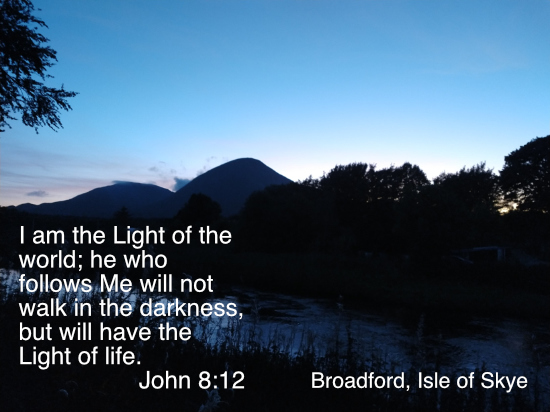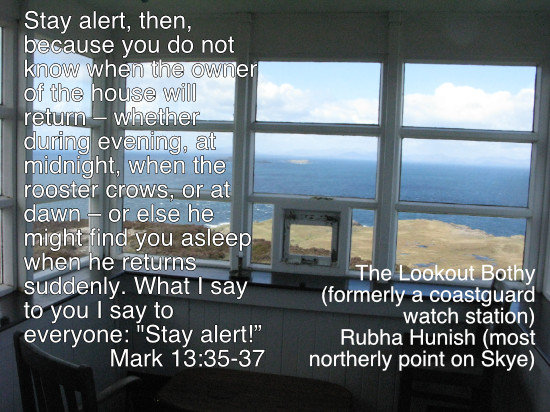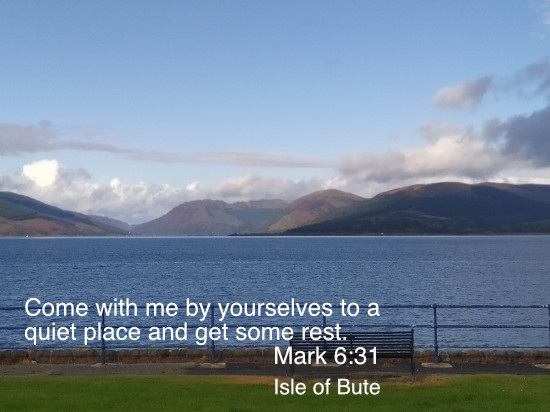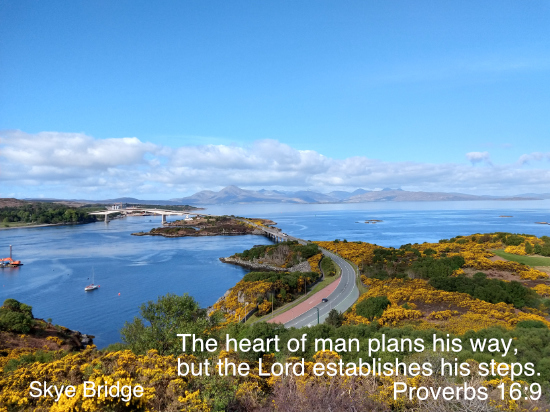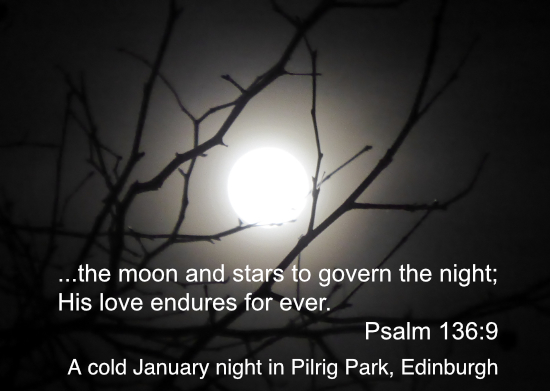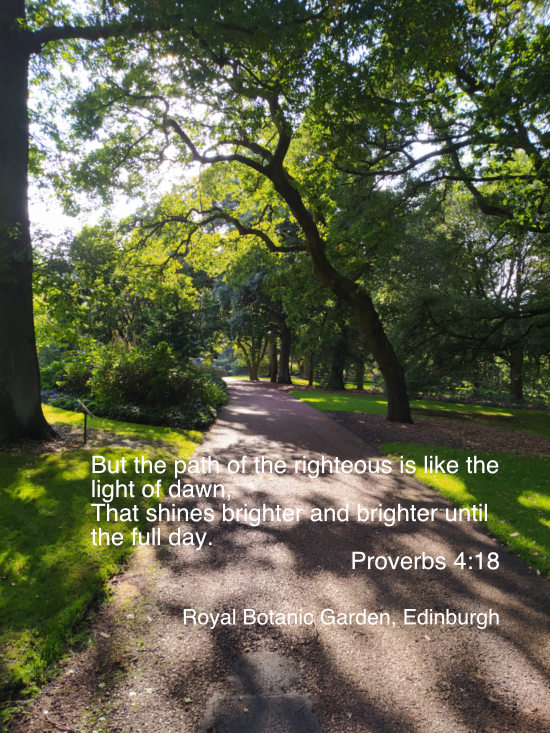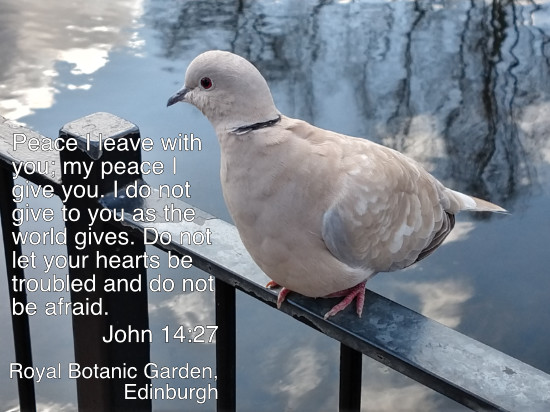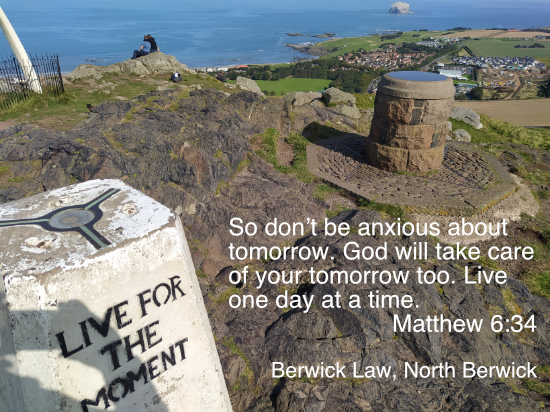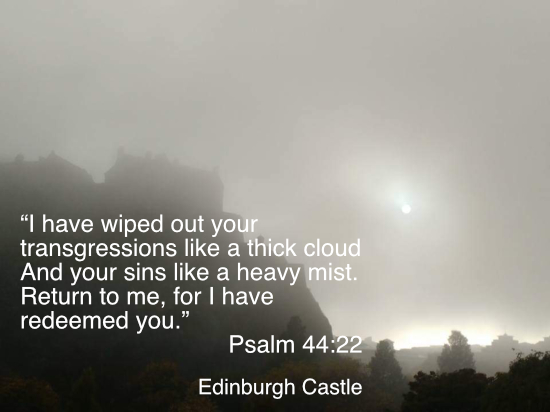Advent Sunday – A Tradition of Hope
In Christadelphian churches, like many ‘low church’ Protestant Christian sects and denominations, mainstream Christian “tradition” is often criticised. Usually in those circumstances, it’s a reference to customs or practices that are perceived as quaint, redundant, obsolete, or misguided. (Though in my experience, anyone declaiming the embedded customs and practices of other Christians is usually blind to their own embedded customs!) But when we talk about Christian “tradition” in an ecclesial or theological sense, what we’re really talking about are the ways in which a church community holds and enacts their beliefs: how they read, interpret, and apply the scriptures to their faith.
Every church has a tradition, a particular method and set of beliefs for practising their Christian discipleship. Even most ‘non-liturgical’ churches (including Christadelphian ones) have some kind of customary liturgy, even if it isn’t formally agreed or written down. But in ‘high church’ liturgical Christian traditions, seasons like Advent represent a conscious effort to focus mind, spirit, faith, and worship on some crucial truths. It’s a chance to refocus our God-thought in specific ways. I think that’s a healthy spiritual practice, so that’s what we’ll do this week.
The Eucharist, the Sunday memorial of breaking bread and drinking wine together, is not just a commemoration of Jesus’ last supper with his closest disciples before his judicial murder by crucifixion. In looking through this lens from the past we can see a different future, a future where we all are united with God (and with each other) in communion with our Lord Jesus. The Eucharist is a promise and an assurance combined, a reminder that
In Christ our release is secured and our sins forgiven through the shedding of his blood... in accordance with the plan which [God] determined beforehand in Christ, to be put into effect when the time was ripe: namely, that the universe, everything in heaven and on earth, might be brought into a unity in Christ.
Ephesians 2:7a,9b-10
The commemoration of the birth of Jesus at Advent is similar. We rejoice in the life of Jesus Christ now, but we see in it a new life to come.
Christians have a faith of hope, but not a faith full of platitudes. I don’t know about you, but I haven’t felt very hopeful these last few years. We’re all feeling things more acutely as we try to care for our neighbours and ourselves during a global pandemic, but it’s more than that. I often feel hopelessness for the times in which my children will grow up. So I appreciate the voice of the Psalmists, who frequently wrestle with this tension between the “now” and the “not yet”.
Hear us, Shepherd of Israel, leading Joseph like a flock. Shine forth, as you sit enthroned on the cherubim. Leading Ephraim, Benjamin, and Manasseh, rouse your might and come to our rescue. God, restore us, and make your face shine on us, that we may be saved.
LORD God of Hosts, how long will you fume at your people’s prayer? You have made sorrow their daily bread and copious tears their drink. You have made us an object of contempt to our neighbours, and a laughing-stock to our enemies. God of Hosts, restore us, and make your face shine on us, that we may be saved.
You brought a vine from Egypt; you drove out nations and planted it; you cleared the ground for it, so that it struck root and filled the land. The mountains were covered with its shade, and its branches were like those of mighty cedars. It put out boughs all the way to the sea, its shoots as far as the river. Why have you broken down the vineyard wall so that every passer-by can pluck its fruit? The wild boar from the thicket gnaws it, and wild creatures of the countryside feed on it.
God of Hosts, turn to us, we pray; look down from heaven and see. Tend this vine, this stock which your right hand has planted. May those who set it on fire and cut it down perish before your angry look. Let your hand rest on the one at your right side, the one whom you have made strong for your service. Then we shall not turn back from you; grant us new life, and we shall invoke you by name. LORD God of Hosts, restore us, and make your face shine on us, that we may be saved.
Psalm 80
Hope is not blind, nor naive. The plaintive cry, “God, restore us, / and make your face shine on us, that we may be saved” is part of the psalmist’s acknowledgement that present suffering is real, no matter what the future holds. The psalmist looks to the king appointed by God, “the one at your right side”, for that hope of restoration—but is also calling for God to “Tend this vine” and act now for the sake of God’s people.
The prophetic tradition of the Old Testament teaches us that the people of God are such because they follow in God’s way. If we expect God’s response to suffering, to “tend the vine”, then as we wait in hope we should expect to live by that hope as well. This is at the root of Paul’s appeal to the church in Corinth.
Grace and peace to you from God our Father and the Lord Jesus Christ.
I am always thanking God for you. I thank him for his grace given to you in Christ Jesus; I thank him for all the enrichment that has come to you in Christ. You possess full knowledge and you can give full expression to it, because what we testified about Christ has been confirmed in your experience. There is indeed no single gift you lack, while you wait expectantly for our Lord Jesus Christ to reveal himself. He will keep you firm to the end, without reproach on the day of our Lord Jesus. It is God himself who called you to share in the life of his Son Jesus Christ our Lord; and God keeps faith.
1 Corinthians 1:3-9
While we wait in hope, “expectantly”, for the advent of our Lord, the apostle reminds us that we have already been called to share in the life that has already arrived. We have been given grace; we must show grace. The Christian hope is an active one, a concrete ‘doing’ hope not just an intellectual ‘being’ hope. It is not lightly that Paul begins this letter with a reminder of the grace shown to us: if you keep reading he proceeds with an appeal to the believers to act on that grace within the church and in the world.
Paul issues an appeal for a unity that recognises diversity. Paul’s hope for his siblings is vested firmly in his confidence that, “By God’s act you are in Christ Jesus; God has made him our wisdom, and in him we have our righteousness, our holiness, our liberation” (v30). If we cannot acknowledge the life of Jesus in one another, or even in ourselves, then where is our hope? The life of Jesus has already arrived once. How can we sustain our hope for its second arrival if we cannot live that life while we wait?
We must live by grace in a world that lacks grace, but we have the apostle’s confident assurance that, “There is indeed no single gift you lack”. This isn’t a ‘prosperity gospel’ of platitudes and false hope. We know that life is hard (for some more than others) and, as the rest of 1 Corinthians shows us, living by grace and living in community is hard too. It’s in our choices as a community that we show to our world what our concept of Christian “hope” looks like.
So let’s go into this season of reflection and anticipation with new determination to “Tend the vine”.
DA
The Parable of the Poppies

I bought a little poppy plant at a Gowanlea Care Home sale a few years ago. They are lovely but usually flop all over the border. This year a number of the buds decided to poke through the clematis support – each through its own little square. What a lovely splash of colour, and all upright despite the strong winds we had!
This year the network of our church has helped us to remain upright and together.
MMcG
Patience
The ‘job’ in question was our larder – a glorified name for a walk-in cupboard under the stairs. We’ve lived in our Victorian house for 49 years and 1 month and this area has had just one attempt at decoration in all that time. And back then, in the year dot, we did everything on a shoestring, so it was definitely not a thing of beauty – sagging ceiling, hasty superficial repairs, mismatched everything. Our walls are very old, thick and crumbly (rather like us!); remove the structures or layers supporting them and everything disintegrates, but here was a golden opportunity to make as much mess as we needed to, do as thorough a job as we had the stamina for, knowing for sure no one else would be inside our house for at least six weeks. Lead me to the sledgehammer!
All the contents were decanted into the dining room, and we set about a wholesale demolition job. It was therapeutic actually, tearing out the botched plasterwork and ancient fixtures, and once the dust cleared, we had a relatively stable if yawning hole. So far so good. But … we hadn’t bargained on the dearth of materials available during lockdown: our particular kind of plaster had achieved the status of gold-dust. Samples and products travelled snail mail. Delay followed delay. Weeks went by. Months.
But eventually the walls were smooth, lined and papered, cables were hidden, new matching fittings installed. Then a decision was made to replicate the original iron brackets and use solid oak shelving, which had to be tailor made, shaped, sanded and oiled. By this point, the tasks had moved well outside my domain. Progress slowed to occasional hiccup speed.
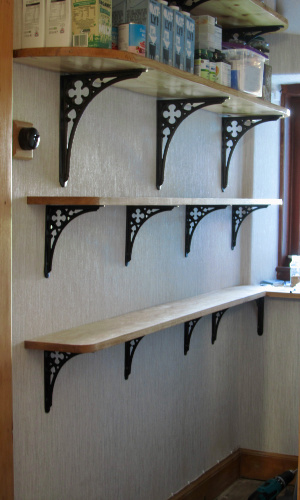
Now, as regular visitors to this blog know, in our household we live our lives to very different drumbeats. What began as an exciting joint venture now turned into a source of tension. When six weeks turned into six months waiting, patience (mine) stretched to wafer thinness, and in the end an ultimatum became the only tool left in my armamentarium. It was October, seven months after the starting gun was fired, that the flooring was laid, and we finally returned to a semblance of normality.
There were so many lessons to be learned from this experience.
We’re all unique and different
To some extent we have to accept each other as we are … easier said than done sometimes! But isn’t it fantastic that God does do exactly that?
See what great love the Father has lavished on us, that we should be called children of God! And that is what we are! (1 John 3:1)
He doesn’t ask us to be identical clones. He doesn’t expect the same of all of us. Nor does he require perfection.
As it is written: ‘There is no one righteous, not even one’. (Romans 3:10)
The Bible is full of stories of flawed people: think Abraham, King David, the apostles Peter and Paul. And yet God accepted them as they were. His grace wipes out all sins and failures. Hard to get your mind around that awesome fact, isn’t it? But that doesn’t mean we can sit back and not try to do our best.
None of us would or could do many of the things these worthies of old did wrong; but could we, would we, emulate the things they did right?
And are we as tolerant of others and their foibles as God is of us? Mea culpa.
People matter more than things
Long after our little DIY enterprise, we, in our house, still have to work and live together. We shall soon ignore a wonky shelf or a misaligned joint, but hasty words or personal criticisms can linger and hurt at a much deeper level. We all need to guard our thoughts and tongues; to forgive and forget - constantly; to keep love and kindness centre stage. It’s a blessing that we have two ears and one mouth: we need to be readier to listen than to speak. Hearing and understanding someone else’s perspective can make perceived wrongs seem much less corrosive.
Love must be sincere. Hate what is evil; cling to what is good. Be devoted to one another in love. Honour one another above yourselves. (Romans 12:9-10)
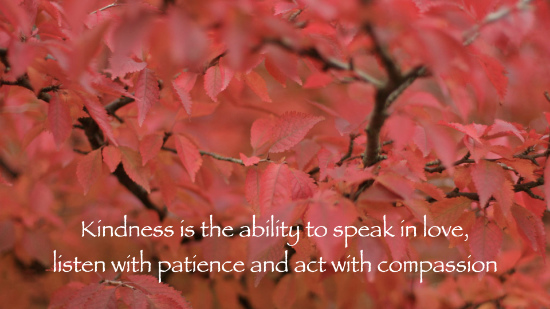
Time is relative
Our own much-loved Gordon MacRae used to ask, ‘What does this matter in the light of eternity?’ If we look at our little lives and worries and preoccupations in the light of God’s perspective, they assume a very different size and shape. The actual quality of the job we did in the larder was singularly unimportant to anyone else but us, and certainly to God; it was how we behaved while we did it that mattered. If we live in his time, and by his standards, we will grow in grace as well as faith – a blessing for today as well as eternity. And unlike ours, God’s patience will never run out.
But do not forget this one thing, dear friends: With the Lord a day is like a thousand years, and a thousand years are like a day. The Lord is not slow in keeping his promise, as some understand slowness. Instead he is patient with you, not wanting anyone to perish, but everyone to come to repentance. (2 Peter 3:8-9)
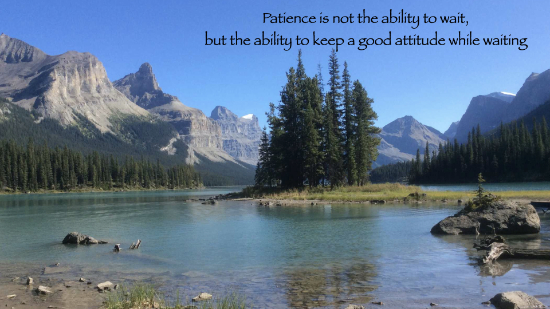
We need to measure our lives by the divine plumb line
Our house always necessitates compromises. If we use plumb lines and spirit levels, our eye and brain can’t always cope with the end result. But in our spiritual lives we need to set our sights by the absolutes that Jesus provides. Where he is involved, if things look wonky, we know for sure we’re the ones who need to adjust.
Remember the plumb line in Amos?
Thus he showed me: Behold, the Lord stood on a wall made with a plumb line, with a plumb line in his hand. And the Lord said to me, ‘Amos, what do you see?’ And I said, ‘A plumb line’ Then the Lord said: ‘Behold, I am setting a plumb line in the midst of my people Israel; I will not pass by them anymore.’ (Amos 7:7-8)
We need that true standard today – God’s plumb line – as the perfect yardstick for everything we do.
Love is the most important attitude to bring to any task, any relationship
We’re all familiar with the high ideal of Galatians 5: the fruit of the Spirit is love, joy, peace, patience, kindness, goodness, faithfulness, gentleness, self-control … (vv22-23) But knowing it intellectually isn’t the same as owning it personally and putting it into effect. I needed to work, and keep on working, at maintaining perspective as the weeks became months through lockdown and beyond to the outskirts of the second wave of Covid restrictions … and still that wretched cupboard wasn’t finished … hanging on to the counsel of perfection in 1 Corinthians 13: Love is patient, love is kind. It does not envy, it does not boast, it is not proud. It does not dishonour others, it is not self-seeking, it is not easily angered, it keeps no record of wrongs. Love does not delight in evil but rejoices with the truth. It always protects, always trusts, always hopes, always perseveres. (vv4-7)
Love of this purity is something we all need to work at constantly. Just like our larder, our whole lives are a work in progress, an exercise in patience.
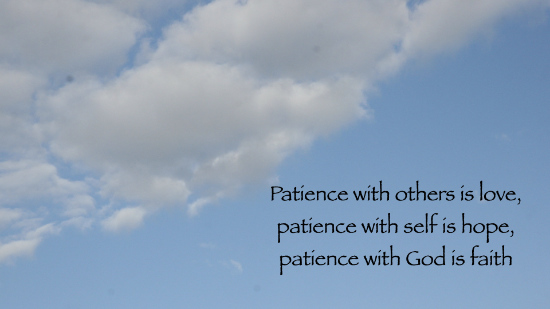
HMcH
Lighthouses
Alone on deck it was as though I had the world to myself. It was one of the most memorable evenings of my life.
What stood out most, and I can still see it in my mind’s eye, were four lighthouses, which flashed their lights at predetermined intervals.
Forward, to the east, 20 miles away, the Ardnamurchan light.
Astern, to the west, 25 miles away, the Barra Head light.
To Port, in the north, 12 miles away, the Hyskier light and
to Starboard, in the southwest, 28 miles away, the Skerryvore light.

All of them continuing to shed light, as they have done for years, reassuring the traveller on the sea, in the dark.
It was both magical, and reassuring. Sure, technology has advanced so much that this crew were using different nautical aids, but the presence of these lights is just as essential today as it ever was.
As always, for me, an experience like that has spiritual significance, so it’s about lighthouses or light that I want to take lessons from today.
Look at it from just two angles:
- What are our lighthouses?
- How are we a lighthouse to others?
1) What are our lighthouses?
Or to put it in more modern parlance, what are our navigational aids?
Look at these amazing words from Job 29 when Job is reflecting on how his life used to be:
Job 29:1-6
29 Job continued his discourse:
2 “How I long for the months gone by,
for the days when God watched over me,
3 when his lamp shone on my head
and by his light I walked through darkness!
4 Oh, for the days when I was in my prime,
when God’s intimate friendship blessed my house,
5 when the Almighty was still with me
and my children were around me,
6 when my path was drenched with cream
and the rock poured out for me streams of olive oil.
This poses several questions for us:
- Can we feel God’s light shining on us?
- Is God our intimate friend?
- Are we in a relationship with him?
- Is he our constant companion?
Job went through unimaginable hardship as we know. He even questioned if God was still with him. Yet God’s light still shone on him. He came through it to a greater future by the light of God.
Another obvious place to go is John 8 where Jesus is speaking to the people:
John 8:12
12 Again Jesus spoke to them, saying, “I am the light of the world. Whoever follows me will not walk in darkness, but will have the light of life.”
In biblical language, ‘darkness’ is not only the night but also the evil that can lead us away from walking in the right direction, towards the light of life – Jesus who brings light into this dark world.
As soon as we turn to Jesus we come out of the darkness of life without God into the light of life with him. He leads us out of darkness, conflict and death into the light of life and love. He gives meaning and direction to our lives.
Jesus is our ultimate lighthouse. The lesson is to keep looking at him and we’ll live.
2) How are we a lighthouse to others?
How can we be navigational aids to help others?
Let’s go back to Job 29 and look at verses 21-25
21 “People listened to me expectantly,
waiting in silence for my counsel.
22 After I had spoken, they spoke no more;
my words fell gently on their ears.
23 They waited for me as for showers
and drank in my words as the spring rain.
24 When I smiled at them, they scarcely believed it;
the light of my face was precious to them.
25 I chose the way for them and sat as their chief;
I dwelt as a king among his troops;
I was like one who comforts mourners.
Again, some more questions for us:
- Do we have the light of the Gospel shining out of our faces?
- Are we always smiling?
- Do people see the fantastic future we have, shown on our faces?
We really can make a difference to the world around us. Our life, in Christ, can shine like light in the spiritual darkness in the world around us. As Martin Luther King put it, ‘Darkness cannot drive out darkness; only light can do that. Hate cannot drive out hate; only love can do that.’
Here’s a question – “Is there anyone around us, smiling on us, the light of whose face is precious to us”?
As Christians, we are called to be a community whose conduct shines as a beacon to others, illuminating the way that God intended life to be lived.
Here is a quote from Steve Jobs who was the CEO of Apple:
“You can’t connect the dots looking forward; you can only connect them looking backwards. So you have to trust that the dots will somehow connect in your future.”
I’m a firm believer that if we are able to convey to others how God is working, or has worked in our lives, then telling that story is one of the most compelling things we can do. This really is shining a light for others.
Two quick examples:
I love the story in John chapter 9 about the man born blind.
Having got over the questions about why the man had the disability, Jesus heals this man through his words and his touch. He touches him with deep love and respect. The miracle causes much excitement. Those who know the blind man begin to discuss the matter.
Some can’t believe it and think it’s someone else who looks like him!!
Some miss the point and get caught up in religious minutiae by saying Jesus can’t be from God as he healed on the Sabbath!!
What I love most is the man’s answer when he finally gets frustrated by all their scepticism and cynical questioning. He tells them he does not know the answer to all their questions, ‘But one thing I do know, that whereas I was blind before, now I see.’
As his eyes are opened, so too are his heart and his mind. He begins by knowing ‘The man they called Jesus’ (v.11). Then he sees him as ‘a prophet’ (v.17) ‘from God’ (v.33). Finally, he believes he is ‘the Son of Man’ and worshipped him (v.38).
This is the power of the testimony. It is an almost unanswerable way of dealing with objections: ‘Before I was like this… and now I am like this… This is the difference that Jesus has made to my life.’ You can be sure that this man talked about this miracle for the rest of his days.
Then there is the leper who came to Jesus recorded at the end of Mark chapter 1. Mark 1:40-44
Jesus healed him, and sternly warned him not to talk to anyone about it for the moment. The leper couldn’t help himself. Mark tells us that he talked freely and many people came to see Jesus.
You can be sure this man talked about it for the rest of his days as well.
Are we aware of where God and Jesus have made a difference in our lives and joined our dots in the past? Does it move us and compel us to tell others?
Like the blind man, we might not know the answer to all the questions but we can use our story to tell others what God has done for us and the faith it has given us. To them this will be a bright and shining light.
Conclusion
We think about Jesus, our light, our navigational aid as it were.
Just as a light is lifted up to the top of a lighthouse to give light, so Jesus was lifted up to be our light.
Jesus used a terrific analogy and applied it to himself when he was talking to Nicodemus, a confused religious leader in his day.
John 3
14 And as Moses lifted up the serpent in the wilderness, so must the Son of Man be lifted up, 15 that whoever believes in him may have eternal life.
God could have removed the deadly snakes, but instead, he left the snakes, but provided a remedy: Just look to the snake that Moses put up on the pole and you will live. That seemed absurd. It didn’t require anything for them to do except to look, in the faith that they would be healed. John shows us that believing in Jesus is equivalent to looking at the lifted up snake in the wilderness.
Everyone who looked was cured on the spot. No one who looked died. You didn’t have to crawl on your hands and knees over broken glass to go and look at the snake. You didn’t need to learn a difficult mantra that you had to recite perfectly as you looked at the snake. You didn’t need to take special classes to learn how to fight the snakes. No, all you had to do was to look and live.
It was a perfect cure for everyone who looked. The remedy is 100% effective. As Jesus says (John 6:37b), “The one who comes to Me, I will certainly not cast out.”
Also, this snake was a self-effacing remedy. You couldn’t take any credit for your cure. You couldn’t boast that you had fasted for days or deprived yourself of anything or done any good works or brought any offerings to the snake. You just needed to realise that you couldn’t cure yourself. You were doomed if God didn’t intervene. That was humbling to your pride!
So the question is, are we still looking to our bright and shining light, the crucified, risen, and exalted Lord Jesus, to save us from ourselves? And, just as importantly, are we reflecting that light, to those in darkness around us, so that they too may look and be saved?
JH

